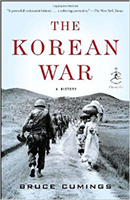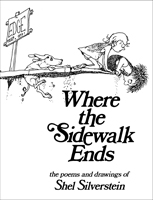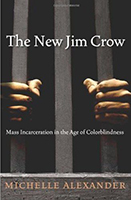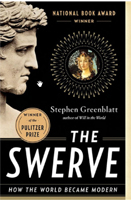The last grades are logged, commencement is over, and for many faculty and staff members, that means it’s time for the pleasures of summer reading.
Rutgers Today asked members of the Rutgers community across the all campuses what one book they most looked forward to picking up now that the rigors of the academic year are behind them. Here are some of their responses.
Katalin Baloga, associate professor, Department of Philosophy, Newark: “I am looking forward to reading Mark Epstein’s The Trauma of Everyday Life. Epstein is a psychotherapist trained in both Western and Buddhist psychology who is a wonderful interpreter of Buddhism for a Western audience. I am fascinated by the Buddhist notion – a leading theme of Epstein’s books – that our psychological problems should be dealt with by drawing them closer experientially rather than distancing from them via various intellectual strategies.
Jason M. Barr, associate professor and director of graduate studies, Department of Economics, Newark: One of the most pressing issues of our day is rising income inequality. I am eager to read Richard Florida’s new book, The New Urban Crisis: How Our Cities Are Increasing Inequality, Deepening Segregation, and Failing the Middle Class – and What We Can Do About It. As the title suggests, inequality has a geographical component, and I’m eager read Florida’s suggestions about how cities can reverse the trends of segregation and income inequality. I’m also interested to see if his recommendations might be applicable to Newark.
Elizabeth Beasley, director of the Rutgers-New Brunswick Summer and Special Projects for the Division of Continuing Studies: This June 3-4, we will launch the new Rutgers-New Brunswick Writers Conference, featuring novelist Dennis Lehane as keynote speaker and singer/songwriter Janis Ian in a concert to kick-off the conference. I’m a longtime fan of both these artists’ work, and my summer reading will include Since We Fell, Lehane’s latest novel; Coronado, his collected short fiction; and Ian’s autobiography, Society’s Child, named for her first hit recording at the age of 14.
Gwendolyn Beetham, senior program coordinator, Douglass Residential College: As usual, I have a long list of books on my "to read" list for the summer, so I'll just mention a few. First, Roxane Gay has two books out that I'm excited about: Difficult Women, a collection of short stories, and Hunger, a memoir that discusses topics surrounding body image. Another brilliant writer I've been looking forward to reading more of is Jill Filipovic, who started her career writing for the feminist blog Feministe. She recently released The H-Spot: The Feminist Pursuit of Happiness, a book that attempts to both document what makes women happy and provide policy suggestions to get them there.
Karen Dentler, assistant dean, School of Arts and Sciences Honors Program, New Brunswick:I recommend the 2017 SASHP summer reading book and winner of the PEN/Hemingway Award, Homegoing by Yaa Gyasi. The book tells the story of two half-sisters from Ghana. Each chapter chronicles the lives of their descendants, and the book spans over 200 years of American and Ghanaian history. Gyasi will welcome our new SASHP students with a lecture and book signing on Sept. 1. The book will serve as the primary text for the fall SAS Honors Colloquium, and, as part of the colloquium, the SAS Honors Program will visit the new National Museum of African American History & Culture in Washington, D.C.
Lauren Grodstein, associate professor of English and director of the Master of Fine Arts in Creative Writing Program, Camden: I've been carrying around Jessica Shattuck's The Women in the Castle in my backpack for almost a month, waiting for a chance to dive in. I know from reviews that the novel is supposed to be mesmerizing; it's about three German women who survived the Nazi era by making impossible choices. Now that the war is over, they have to live with the decisions they made. Jessica is an incredible writer – we went to graduate school together and she's been impressing me with her work for almost 20 years.
Saira A. Jan, clinical professor, Ernest Mario School of Pharmacy, Piscataway: I am planning to read Elon Musk: Pay Pal, Tesla Motors, SpaceX and the Quest for a Fantastic Future by Ashley Vance. Vance describes the entrepreneur’s life starting from a rough upbringing in South Africa to the pinnacle of the global business world. Musk is a visionary who believes in creating a world that inspires humanity. He brings innovation and challenges individuals to dream bigger. I have heard his interviews and TED talk, and I find him to be the most unusual and striking figures in American business history.
Suzy Kim, associate professor of Korean history, Department of Asian Languages and Cultures, New Brunswick: Both North and South Korea have been in the headlines a great deal these last few months. But even as they are covered in the news, I'm always struck by how little awareness there is among the American public about the role of the United States in Korea. I'll be rereading The Korean War: A History by Bruce Cummings to see what lessons history can offer out of the current impasse. For lighter fare (but by no means light on substance), I'd like to start working through the entire canon of Octavia Butler's science fiction writing, especially the Xenogenesis trilogy. Her works have treated issues of racism, sexism and other forms of inequalities, which seem particularly urgent in the current moment.
Christopher J. Manente, executive director, Rutgers Center for Adult Autism Services, Graduate School of Applied and Professional Psychology, New Brunswick: My 3-year-old son has recently begun rhyming his way through life, so he and I will be exploring Shel Silverstein’s immortal classic Where the Sidewalk Ends. During nap time, I will be reading A Walk in the Woods: Rediscovering America on the Appalachian Trail by Bill Bryson in the hope of being inspired to hike the 70-mile stretch of the Appalachian Trail that runs through the northwest corner of New Jersey.
David Mechanic, Rene Dubos University Professor Emeritus and founding director, Institute of Health, Health Care Policy, and Aging Research: Now that I am an emeritus professor, I get to read more books and satisfy my eclectic reading preferences. Close to my career interests, I recommend a new, important book on a neglected area by a young sociologist, Mathew Desmond, Evicted: Poverty and Profit in the American City. Also, as someone who has spent the past 50 years studying the pathologies of the American health care system, I know how confusing the complexities of our system are for most people. Elisabeth Rosenthal has just published a highly accessible and reader friendly perspective, An American Sickness: How Healthcare Became a Big Business and How You Can Take It Back. Rosenthal is a physician trained in internal medicine and a superb medical journalist.
Alan Monheit, professor of health economics; chair, Department of Health Systems and Policy; associate dean for academic and faculty affairs, School of Public Health, Piscataway: Growing income inequality, the declining middle class and the lack of adequate income for many of our citizens are among our most pressing public policy issues. This summer, I plan to read two books related to these issues. The first, The Crisis of the Middle-Class Constitution by Ganesh Sitaraman, makes the important observation that in contrast to European governments whose constitutions were based on inevitable class conflict, our constitution was conceived on the basis of economic and political equality with a dominant middle class. In Basic Income: A Radical Proposal for a Free Society and Sane Economy, Philippe Van Parijs and Yannick Vanderborght make the case for the fundamental societal requirement of a basic income for all citizens.
Ronke Mojoyinola Olabisi, assistant professor, Department of Biomedical Engineering, Piscataway: I am planning on reading The New Jim Crow: Mass Incarceration in the Age of Colorblindness by Michelle Alexander. It discusses why well-meaning people who strive to "not see color" are inadvertently blinding themselves to systemic problems and thus removing themselves from being a part of the solution; one cannot stop another from bleeding to death if they don't see red. It delves into how the United States, with a population of just over 300 million people, has more people in prison than China, which has over a billion more people than the US. It discusses how the rights of the imprisoned are stripped once they emerge such that they are second-class citizens, and explores the historic problems with the justice system that result in many of the imprisoned being people of color, while many of their white counterparts go free for the same crimes.
Barbara M. Ostfeld, professor, Department of Pediatrics; program director SIDS Center of New Jersey, Rutgers Robert Wood Johnson Medical School, New Brunswick: My choice is The Swerve: How the World Became Modern, by Stephen Greenblatt. In 1417, a papal scribe discovered a copy of Lucretius' On the Nature of Things. Re-introduced in the Renaissance, the poem offered a novel perspective that "swerved" the world in a new intellectual direction. The book tells the story of the discovery and its impact. The book won the Pulitzer Prize and the National Book Award for Non-Fiction, and garnered lots of reactions, both positive and negative. Regardless of the criticisms, the consensus is that it is so well-written and intriguing that it becomes a page-turner.
Shauna Shames, professor, political science, Camden: This summer I plan to read more than just the first few pages of SPQR, by Mary Beard (which is how far I have gotten so far). I was lucky enough to hear Beard give a public lecture on her work this past fall at the Free Library in Philadelphia, and she was so wonderfully enthusiastic and vibrant and excited with her research that it made me want to see what she had found. I am not a historian, and know little about the Roman empire, which makes me even more eager to learn.
Timothy Stewart-Winter, associate professor of history, Newark: I'm very eager to read the new book Jane Crow: The Life of Pauli Murray by Rosalind Rosenberg. Murray was a pioneering legal thinker and an African-American woman lawyer at a time when very few black women had access to higher education. She also was what we would now call transgender, and did a great deal of reading and research about her own complicated experience of gender. Though well known to civil rights historians for her role in shaping the arguments behind NAACP's school desegregation litigation, Murray hadn't received a full-length biographical treatment until now.







